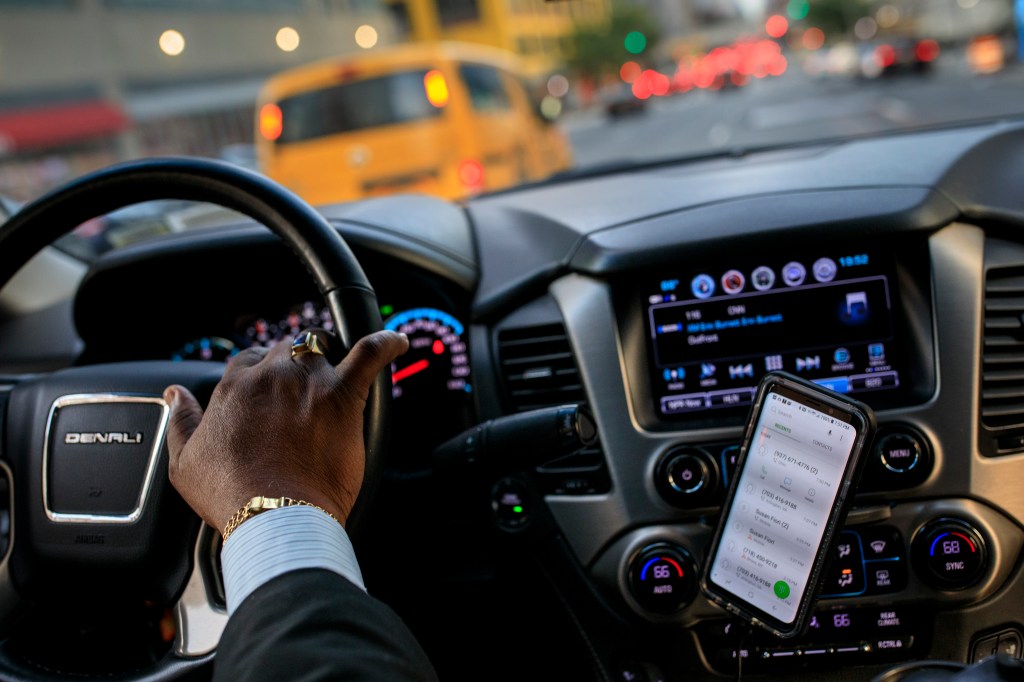Gig workers who have long been excluded from basic labor rights and protections are now being overlooked by state governments as a priority for the COVID-19 vaccine.
New York State Governor Andrew Cuomo’s next phase of vaccine distribution includes a long list of workers deemed “essential,” including public transit workers, grocery store workers, teachers, police, corrections officers, and firefighters. But notably, the state’s millions of rideshare and taxi drivers and food delivery workers who interact with millions of New Yorkers on a daily basis, have been excluded from this list.
Videos by VICE
On Monday, New York state senator Jessica Ramos sent a letter to Governor Cuomo co-signed by 19 other assembly members—demanding that the next phase, known as 1B, which began this week in some parts of the state, include gig workers.
“In creating a hierarchy of essential workers for the COVID-19 vaccine, two crucial groups have been left out, delivery workers and For-Hire-Vehicle drivers,” she wrote.
The situation is mirrored around the country where states have prioritized essential workers in public education, public safety, agriculture, and healthcare, but failed to outline a plan for rideshare and food delivery workers.
“We celebrate drivers and delivery workers as essential but treat them as if they are disposable,” Senator Ramos told Motherboard. “The people who keep us fed, get home, and stay home safely deserve dignity and safety too.”
Richard Azzopardi, a senior advisor for Governor Cuomo, told Motherboard, “Here’s the facts: We have a universe of 7 million people eligible for the vaccine and are currently only getting 300,000 doses a week from the federal government. The most vulnerable are covered first per guidance from the CDC and the sooner we get more vaccines from the feds more frequently, the sooner we can expand the universe to other New Yorkers.”
The CDC’s guidelines for who should get vaccinated in phase 1B, after healthcare professionals and nursing home residents, includes “essential workers” defined as “fire fighters, police officers, corrections officers, food and agricultural workers, United States Postal Service workers, manufacturing workers, grocery store workers, public transit workers, and those who work in the educational sector.” Their list does not include food delivery or rideshare drivers.
On Monday, New York Governor Cuomo expanded his list of those eligible in the next phase, but still did not include gig workers.
During the pandemic, millions of laid off and furloughed Americans have turned to gig work as a lifeline, but they received little in return. Gig work itself offers very few protections—no healthcare, paid sick days, overtime pay, minimum wage guarantee, or worker’s compensation—and often places workers in the direct, extended exposure to customers, clients, and patrons, particularly people going to and from the airports using Uber and Lyft.
“Vehicles are enclosed spaces which make it easy for the virus particles to accumulate during a day’s work,” Ramos’s letter reads. “Commercial drivers regularly transport clients to and from airports, which puts them at high-risk for infection, including the new coronavirus variant…. Public transportation drivers are already rightfully members of group 1B; it is clear that their counterparts deserve the same access to the vaccine.”
Delivery drivers, too, on platforms such as GrubHub, DoorDash, UberEats, and Caviar, are at high risk of contracting the virus between waiting in line at restaurants to pick up food and making deliveries to customers’ houses.
In recent days, Uber and Lyft have lobbied the Biden administration for a role transporting people in the United States to get their vaccinations, requesting early access to innoculations for drivers, in particular.
It should be noted that Lyft and Uber have made it unnecessarily difficult for their workers to access paid sick time or quarantine time during the pandemic, and spent tens of millions of dollars fighting a California law that would require them to provide their drivers with health insurance and paid time off.
More
From VICE
-

Illustration by Reesa. -

Screenshot: Microsoft -

Photo: Diamond Dogs / Getty Images -

Photo: Mary Long / Getty Images
